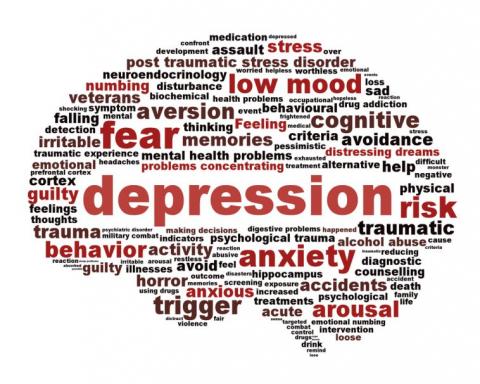
"This month I thought I would spend a little time talking about mental health, in particular, depression. Depression is a common illness that affects about one in thirty adults in the United States, and the lifetime risk (the chance that any one of us may be clinically depressed at some point in our lifetime) is 18% (roughly 1 in 5). How do you know if you or someone you care about is depressed and not just sad? There are several clues we can look for in anyone. But first thing’s first, while it is true that all depression includes sadness, not all sadness represents depression. Major losses, including the loss (by death or other reasons) of a spouse, child, friend or parent will, of course, lead to sadness. The major distinction is what impact the loss has on the person, how severe the impact is, and if the intensity of that impact lasts longer than 2 weeks in a row. Specifically we ask, is there a dramatic change in the sleep pattern (sleeping much more or much less) than in the past? Is the person interested in the things that previously brought them pleasure? For example, do they still enjoy watching sports, getting together with friends, biking, or taking walks in the park? The point is not the activity, but are they (are you) able to enjoy things like in the past? Another symptom to look for is a change in appetite. Is there a change in weight? Either gaining weight or losing weight that is unintentional and out of the norm for that person is a clue that depression may be the cause. In addition, lack of energy can be a symptom of depression. Always feeling tired, not completing tasks, chores or hobbies, and a general sense of fatigue are common in patients who are depressed. You might be surprised that the opposite can be true too. That is to say, that being irritated, on edge, or what some people call “all worked up about nothing” can also be associated with depression; as can “being forgetful”, loosing your train of thought or having difficulty staying focused. Finally, and I saved this one for last because it is the most concerning, there is often a sense of hopelessness and uselessness. Someone who is depressed has a difficult time remembering that they didn’t always feel this way – that things can get better. Loss of hope is one of the leading indicators that someone decides there is no reason to keep on living. Thinking about suicide is more common than we care to admit – because it is frightening to most people. But it is just as common as changes in sleep, low energy, and changes in weight. Maybe you thought of someone as you read through this. Given how common depression has become, it is likely you know someone who is has it. Keep in mind, however, that these symptoms can point to other causes as well. The important thing to know is you are not alone, and there is help. I encourage you to set an appointment with your doctor, who can check for medical causes, evaluate for medication side effects, and if needed treat depression for you or your loved one."
- Log in to post comments

